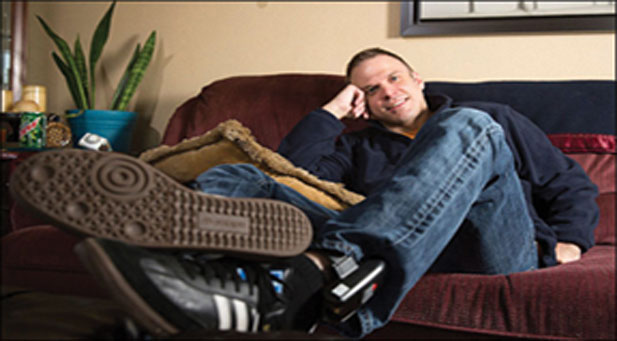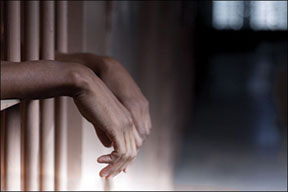
 Sex, Lies and HIV: When what you don’t tell your partner is a crime
Sex, Lies and HIV: When what you don’t tell your partner is a crime
By Sergio Hernandez Special to ProPublica This story was co-published with BuzzFeed
(The IV in a Series)
On June 26, 2008, Nick Rhoades was at home in Plain-field, Iowa, when he received a chat invitation on Gay.com, a dating and social networking site. The sender, Adam Plendl, was a 22-year-old student at the University of Northern Iowa.
At 3 a.m. that morning, the men struck up a conversation. Plendl invited Rhoades to meet him in Cedar Falls, roughly 30 miles south of Plainfield, where Plendl had just moved into a new apartment several blocks from campus. The two men spent the next several hours drinking pomegranate vodka martinis, smoking marijuana, unpacking Plendl’s belongings and bonding over their struggles with bi-polar disorder. Eventually, they had sex.
A few nights later, Plendl was sharing a midnight cigarette with Jordan Brown, a friend who had learned through the grapevine that Rhoades was, as he later de-scribed it to police, “sick.” Plendl panicked at the possibility that he had been exposed to HIV. He said he “flew out of the house” to the emergency room of the nearby Sartori Memorial Hospital.
As he tells it, Plendl never planned to press charges against Rhoades. He went to the hospital seeking a doctor who could prescribe him a short-term, emergency regimen of HIV drugs that, if started within 72 hours of exposure to the virus, can stop infection from taking root. But when the Sartori staff seemed clueless about the procedure, Plendl went to the emergency room at Covenant Medical Center in the neighboring town of Waterloo.
There, Brandy Weida-Coo-per, a registered nurse who was working the graveyard shift, admitted Plendl to the ER and, records show, made the call to involve police. “I never called the police,” Plendl said. “Yes, when I was asked questions, I provided them answers. But I did not call the police; the hospital did.”
In a telephone interview, Weida-Cooper declined to ex-plain what spurred her decision to alert authorities. (A spokesman for Wheaton Franciscan Healthcare, the Roman Catholic nonprofit that owns both Covenant and Sartori, also declined to comment.) In any case, by 4:02 a.m., a Cedar Falls patrol officer was standing in Weida-Cooper’s emergency room, ready to take Plendl’s statement.





Be the first to comment